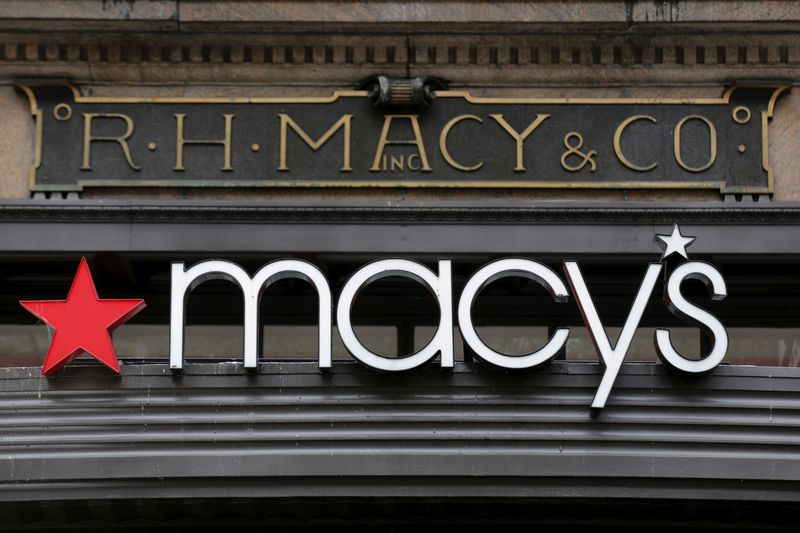Investing.com’s stocks of the week
By Savyata Mishra
(Reuters) -Macy's on Tuesday warned of weak consumer spending through the crucial holiday shopping season and signaled a faster-than-expected rise in credit card payment delays.
Shares of the department store chain closed 14% down at $12.66, their worst day since June 2020. The stock has lost nearly 39% this year.
The company kept its 2023 forecasts unchanged despite beating Wall Street expectations for the second quarter. Its cautious view also weighed on the retail sector shares, including Kohl's (NYSE:KSS) and Nordstrom (NYSE:JWN).
"The macro environment is having the lion's share of the impact on credit and is a real indicator of where we think the health of the consumer is ... supporting our cautious approach," Macy's (NYSE:M) CFO Adrian Mitchell said on a conference call.
In a clear sign that higher borrowing costs were straining customers, Macy's credit card revenue, which accounted for about 2% of the total revenue in the quarter, slumped 41%.
"The biggest negative surprise was the sharp fall-off in credit income," Citi analyst Paul Lejuez said.
The retailer, like Target and Tapestry (NYSE:TPR), has seen a drop in demand from middle-income customers as they cut back spending on apparel and handbags amid elevated inflation.
This led to bloated inventories for U.S. retailers. Throughout the quarter, Macy's cleared excess stock after a move to convert its merchandise for the spring and summer hurt demand, leading to a slip in gross margin.
"It is prudent to maintain our cautious view on the consumer and their capacity to spend on the discretionary categories," Mitchell said.
Macy's reaffirmed its expectations for 2023 sales of $22.8 billion to $23.2 billion and adjusted full-year profit per share between $2.70 and $3.20.
"What was expected from retailers is that the second half of the year would be easier because comps would be easier ... (but) they are up against the consumer slowing down," said Jessica Ramirez, an analyst with Jane Hali and Associates.
It posted market-beating adjusted earnings per share of 26 cents, while comparable sales for Macy's-owned and licensed stores fell by a smaller-than-expected 7.3%.
